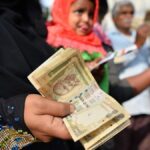The Council of Representatives in Bahrain recently rejected an urgent proposal to postpone a Ministry of Tourism decree imposing a BD3 per diem hotel accommodation fee for hotel rooms by six months. The proposal, tabled by several MPs, received mixed support with 11 votes in favor, 2 abstentions, and 16 votes against. The Ministry of Tourism had recently implemented a Hotel Accommodation Fee of BD3 per night for all occupied hotel rooms, requiring visitors to pay an additional BD3 per day of their stay. The generated revenue from this fee is intended to enhance the overall visitor experience, including hosting events and improving attractions.
MP Mohamed Janahi criticized the imposition of the BD3 fee, arguing that it will only serve to overburden tourists and citizens. He highlighted concerns about the impact of the fee on agreements between hotels, tour agencies, and tourism companies, particularly in conjunction with existing charges such as a service charge, government levy, and VAT. Janahi proposed increasing the government levy by 2 to 5 percentage points instead of adding the additional fee. On the other hand, MP Hisham Al Awadhi disagreed with the proposed deferral, suggesting that the fee would benefit the economy and downplaying concerns raised by Janahi as minimal. MP Basma Mubarak proposed exempting Bahrainis from paying the new fee to promote domestic tourism and support the local population.
The debate surrounding the hotel accommodation fee in Bahrain has brought to light various perspectives on its impact on tourists, citizens, and the economy. Some MPs argue that the BD3 per diem fee will only serve to burden visitors, while others see it as a revenue-generating opportunity to improve the overall visitor experience. The decision to reject the proposal for a deferment reflects a division among representatives on the necessity and implications of the fee. While some believe that the fee may disrupt existing agreements and increase financial strain on tourists, others view it as a necessary measure to support the tourism sector and boost the economy.
MP Janahi’s proposal to increase the government levy as an alternative to the BD3 fee highlights the need for careful consideration of the financial implications of such policies. Balancing the revenue needs of the government with the potential impact on tourism and local businesses is crucial in determining the most effective approach. The exemption suggested by MP Mubarak for Bahrainis could potentially address concerns about the fee’s impact on domestic tourism, encouraging locals to explore their own country’s attractions without incurring additional costs.
Moving forward, it is essential for policymakers in Bahrain to continue assessing the impact of the hotel accommodation fee on tourism, the economy, and the local population. By considering alternative revenue-generating measures, addressing concerns raised by MPs, and promoting domestic tourism, the government can strike a balance that supports the growth of the tourism sector while also prioritizing the well-being of visitors and citizens. Collaboration between government officials, representatives, and industry stakeholders will be key in navigating the complex challenges and opportunities associated with tourism policies in Bahrain.











